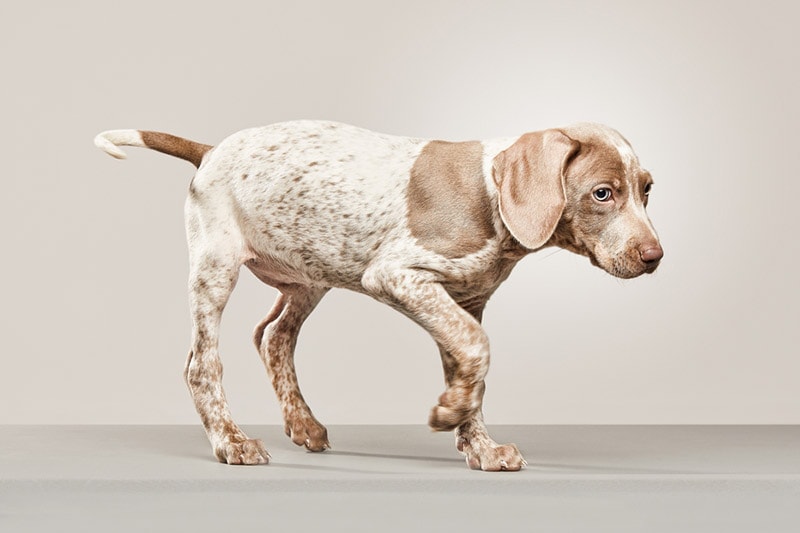How Long Do Jindos Live? Average Lifespan, Data & Care
Updated on
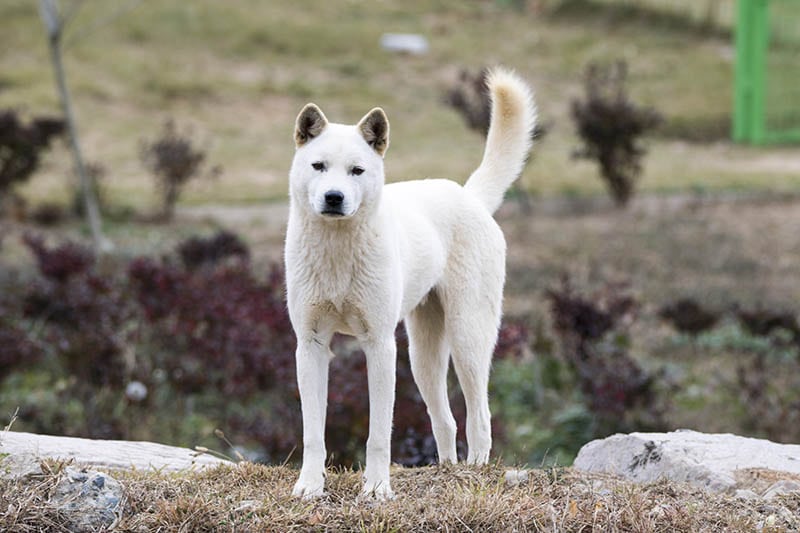
Click to Skip Ahead
At first glance, the Jindo might look like an Akita or Shibu Inu, but they are their own unique breed. With erect ears, a fluffy double coat, and a loveable temperament, the Jindo makes a loyal companion to those lucky enough to own them.
They are a South Korean dog breed that was developed for hunting game animals due to their strong prey drive. They are medium-sized Spitz dogs that are treasured for their loyalty, bravery, and intelligence in Korea. While you can find Jindos in many parts of the world, the majority of Jindo dogs are preserved in South Korea on Jindo Island where they have existed for thousands of years.
So, how long do these dogs live and what can influence their lifespan? The average lifespan of a Jindo dog is between 12 to 15 years. This article will give you more insight into the Jindo dog’s lifespan.
What’s the Average Lifespan of a Jindo Dog?
The average lifespan of a Jindo dog is between 12 to 15 years with an average age of 14 years. In comparison to many other dog breeds, the Jindo has a standard lifespan that might exceed similar-sized dogs by only 1 or 2 years. Jindo dogs generally have few health issues, so the majority of Jindo dogs can live long lives with the right care and of course, good genetics.
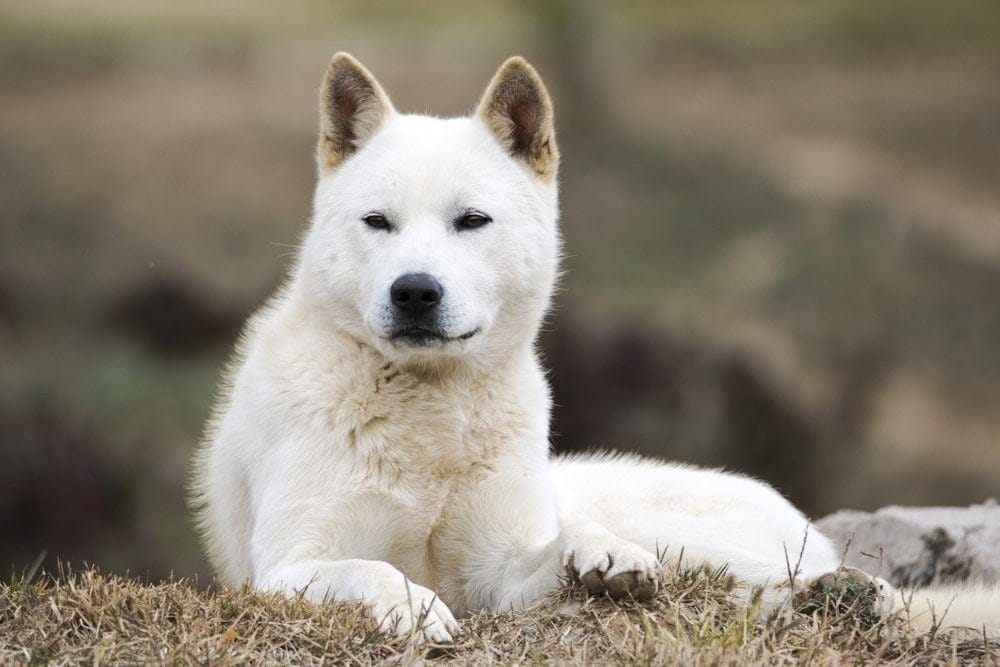
Why Do Some Jindo Dogs Live Longer Than Others?
Even with a decent average lifespan, a Jindo dog may still live longer or shorter than what they are expected to. The following factors are likely to influence how long a Jindo dog lives:
1. Nutrition
A good diet is the basis for a healthy dog, and it will ensure that they are receiving the nutrients they need to live a long life. Jindos are facultative carnivores or omnivores depending on how you want to look at it, and the majority of a Jindo dog’s diet should consist of meat-based protein, along with grains, fruits, and vegetables.
Choosing a higher quality dog food that has a balance of nutrients with fewer fillers and potentially harmful ingredients is going to be the best source of nutrition for your Jindo. Keep in mind that dogs can develop allergies or food sensitivities to specific ingredients in the food, which may affect your dog’s quality of life.1
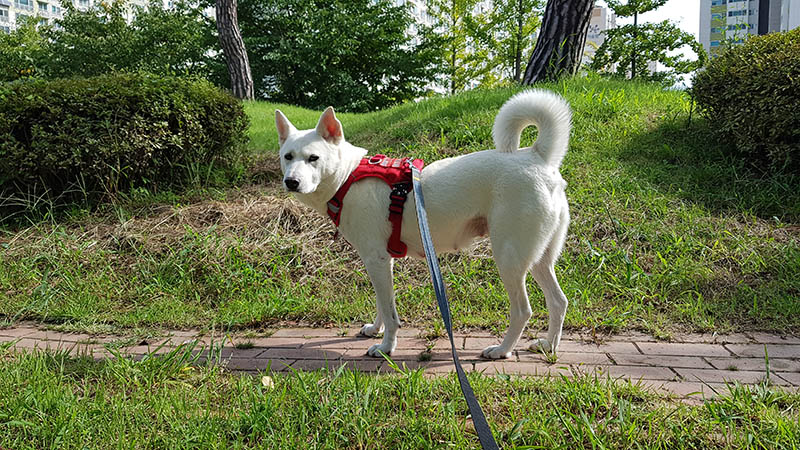
2. Genetics
Genetics plays a major role in your Jindo’s lifespan and can influence your dog’s predisposition to develop inherited disorders. Since the majority of Jindo dogs on their indigenous island in South Korea are bred from similar genes to keep them purebred, they may be at risk of developing an inherited disorder. This may affect their overall lifespan, which is why dogs should undergo breeding soundness examinations before being bred.
3. Living Conditions
It’s expected that not all dogs are going to grow up in the same environment, so their living conditions can influence how long they will live. A Jindo without a proper diet, adequate shelter from the weather, and regular access to veterinary care is naturally going to live shorter than a Jindo receiving proper care indoors and regular veterinary checkups. The dogs’ living conditions will also affect the type of diseases, parasites, and injuries they may develop depending on what they are exposed to.
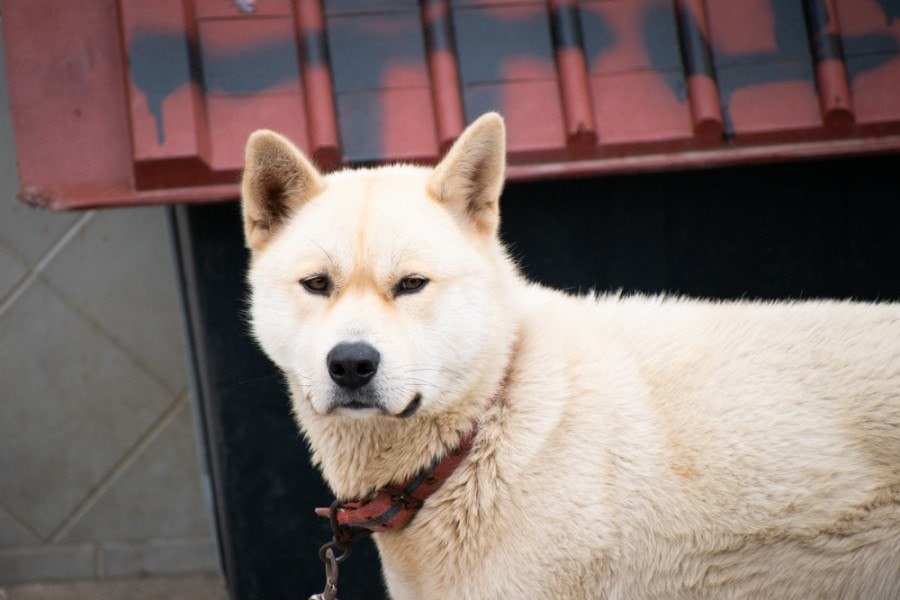
4. Health Problems
Jindos are a relatively healthy breed of dog with few reported genetic issues in the breed. Some dog breeds are prone to health problems that are common for the particular breed, although this doesn’t mean that a dog will develop them in their lifetime. Two of the most common health issues and autoimmune diseases affecting Jindo dogs seem to be hypothyroidism and discoid lupus erythematosus (DLE). These health problems can affect your Jindo’s quality of life, and possibly shorten it.
Even though Jindos are a breed that is not prone to obesity, you should still ensure they are being exercised and fed a balanced diet to prevent weight-related health problems.
The 5 Life Stages of a Jindo Dog
A Jindo has the same five life stages as other dogs. Here’s what you can expect during each life stage:
1. Puppy
From birth to around 6 months of age, Jindos will be considered puppies. They will be small and playful, and this developmental stage is when you should begin socializing and training them. This is the stage when your Jindo will experience most of their growth.
2. Young Adult
From 7 months to around 2 years of age, Jindos will be considered young adults. Your Jindo will still have some of their playfulness and puppy-phase behavior, but they will begin to look like adults. Most Jindos will be fully grown after this stage.

3. Mature Adult
Jindo dogs will be fully mature at 2 years old and have settled into their final adult size and weight. Adult Jindo dogs have an adult size of 17 to 24 inches and a weight of 30 to 50 pounds.
4. Senior
At around 9 to 10 years of age, your Jindo will be considered a senior. They may develop age-related health problems and be much slower than when they were in their younger years.

How to Tell Your Jindo Dog’s Age
If you are unsure of your Jindo dogs’ age, you can take them to a veterinarian for an examination or DNA test to find their approximate age range. Unless you got your dog from a breeder or as a puppy, you probably won’t know the exact birth date of your Jindo dog.
Your dog’s teeth and overall physical condition can be a great indication as to how old they are. Stained and worn teeth can indicate an older dog, along with lower muscle tone and grey hairs on the snout. Young Jindo dogs are going to be livelier and fuller of energy, and they are unlikely to suffer from age-related problems.
Conclusion
You can expect your Jindo to live between 12 to 15 years of age, with their life expectancy depending on their overall care, health, and genetics. The Jindo has an impressive lifespan for a medium-sized dog and makes a loving companion for more experienced dog owners.
Related Reads:
Featured Image Credit: jamongcreator, Shutterstock





